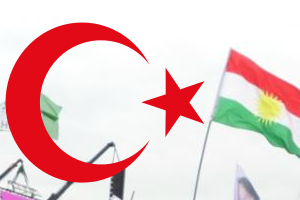Taking it to the streets: Turkey's rising social tensions
By Gareth H. Jenkins
September 18th, 2015, The Turkey Analyst
The recent spate of violent protests by Turkish ultranationalists – including attempted lynchings of ethnic Kurds -- and the attacks by government supporters on the Hürriyet newspaper have reinforced already serious concerns about both the deepening fissures in Turkish society and the continuing weakening of the rule of law in the country.
Turkey’s Kurds and the Post-election Political Landscape
By Gareth Jenkins (vol. 8, no. 13 of the Turkey Analyst)
The Turkish general election of 7 June stripped the ruling Justice and Development Party (AKP) of its parliamentary majority for the first time since November 2002 and dealt a devastating blow to President Recep Tayyip Erdoğan’s hopes of replacing the country’s parliamentary system with an autocratic presidential one in which all political power was concentrated in his own hands. But, even though the election was an undoubted triumph for the pro-Kurdish Peoples’ Democratic Party (HDP), it has also left the Kurdish nationalist movement facing a number of challenges.

Turkish Democracy Is Not Out of the Woods
By Halil Karaveli (vol. 8, no. 12 of the Turkey Analyst)
The immediate effects of Turkey’s June 7 election was that the ruling Justice and Development party (AKP) lost its majority and President Erdoğan was forced to put his plans for a presidential system on hold, at least for the moment. Yet the prospects for Turkish democracy are not necessarily any brighter today. The most likely outcome is a coalition between the AKP and the rightist Nationalist Action Party (MHP). That is the preferred outcome for “conservative” business interests, who challenge “secular” business interests and want to continue to use state power to get their hands on a bigger share of capital. Their interests ensure that the AKP will remain on its confrontational track; that is the principal dynamic behind Turkey’s drift toward authoritarian rule, and it is far from having been halted.

Creeping Shadows: The Repercussions of the AKP’s Aggressive Policy towards the HDP
By Gareth Jenkins (vol. 8, no. 8 of the Turkey Analyst)
In recent weeks, Turkey’s ruling Justice and Development Party (AKP) has pursued an increasingly aggressive policy towards the pro-Kurdish Peoples’ Democratic Party (HDP) in the hope of pushing the party below the 10 per cent national threshold in the June 7, 2015 general election while simultaneously preventing Turkish nationalists amongst the AKP’s own voters from defecting to the Nationalist Action Party (MHP).
What the Columnists Say
Two topics dominate the comments after Turkey’s presidential election: the strong showing of Selahattin Demirtaş, the Kurdish candidate, who succeeded in appealing to a broader electorate, and who is generally seen as the real star of the election; and the failure of Ekmeleddin İhsanoğlu, the lackluster joint candidate of the opposition parties CHP and MHP. Liberal and social democratic commentators see Demirtaş’ success as heralding the birth of a new left. These commentators stress that the CHP needs to heed the call of this new left and warn that the party is doomed if it persists in allying itself with the rightist MHP. Meanwhile, the public rift within the AKP between the supporters of president-elect Recep Tayyip Erdoğan and the outgoing president Abdullah Gül has led many commentators to speculate about the future of the AKP. The prediction is made that Turkey’s course will be determined by the outcome of the intra-AKP struggle.





